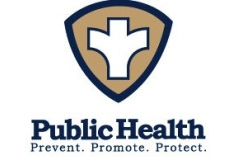Middle-Brook Regional
Health Commission
“Healthy People and Places – A Healthy Community”
Serving Green Brook, Warren, Watchung and Bridgewater
“Healthy People and Places – A Healthy Community”
Serving Green Brook, Warren, Watchung and Bridgewater
Cigarette smoking, and tobacco use in general, is a very dangerous and addictive behavior, as it harms nearly every organ in the body and causes lung disease, heart disease, stroke, multiple types of cancer and other problems. Pregnant smokers risk going into early labor. Children who are exposed to secondhand smoke have an increased risk of SIDS, or developing multiple conditions affecting the lungs, such as impaired lung function, respiratory infections and severe asthma. Unfortunately, there are still many people who continue to smoke. The numbers for cigarette smokers are decreasing, but in 2020, 3.6 million middle school and high school students reported using e-cigarettes. E-cigarettes, also known as vapes, contain toxic ingredients like nicotine, THC and CBD oils, and additives that are very harmful and cause lung injury.
Part of the CDC’s plan of action is to support tobacco control programs, help people understand the dangers of smoking and support those who want to quit. They have created media campaigns showing the dangers of smoking, established a national hotline available for those who need help quitting, and work with health insurance companies, healthcare providers and employers to improve support for users who want to quit. New Jersey has also taken a strong stance on tobacco control. It’s Prevention and Control Programs work on preventing tobacco use among youth, promoting and assisting cessation, and protecting residents from exposure to secondhand smoke.
For those who need assistance with quitting, call 1-800-QUIT-NOW, which will put you in touch with NJ’s quitline. You will receive free services that include counseling and medication. You can also visit the CDC’s Guide for Quitting Smoking page for helpful tips cdc.gov. As always, contact your healthcare provider for any questions, concerns or assistance with quitting.
For more information, visit cdc.gov/tobacco/about/ and cdc.gov/tobacco/e-cigarettes/
